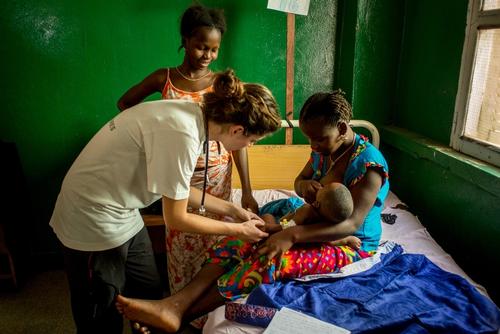
4,900
4,9
3,700
3,7
500
5
In the central region of Bafatá, MSF continued working to reduce childhood mortality by managing the regional hospital’s neonatal and paediatric wards, and running a nutrition programme for children under 15 years of age. Teams also supported four health centres in rural areas and trained community health workers to diagnose and treat diarrhoea, malaria and acute respiratory infections, and to detect and refer patients with malnutrition. They also operated a hospital referral system.
MSF doubled the bed capacity of the regional hospital during the peak malaria season and, as an added preventive measure, implemented a seasonal malaria chemoprevention (SMC) strategy for the second year running, reaching 21,000 children in Bafatá. As a result of the team’s advocacy and training initiatives, funds were allocated for SMC in other regions of Guinea-Bissau.
In Simao Mendes national hospital in Bissau, MSF supported activities in the paediatric intensive care unit and, from September, provided 40 beds in the neonatal intensive care unit. The team worked closely and successfully with the Ministry of Health’s paediatric and maternity services to reduce the very high child mortality rates in the units, which were mainly due to neonatal sepsis, lower respiratory tract infections and malaria.


















